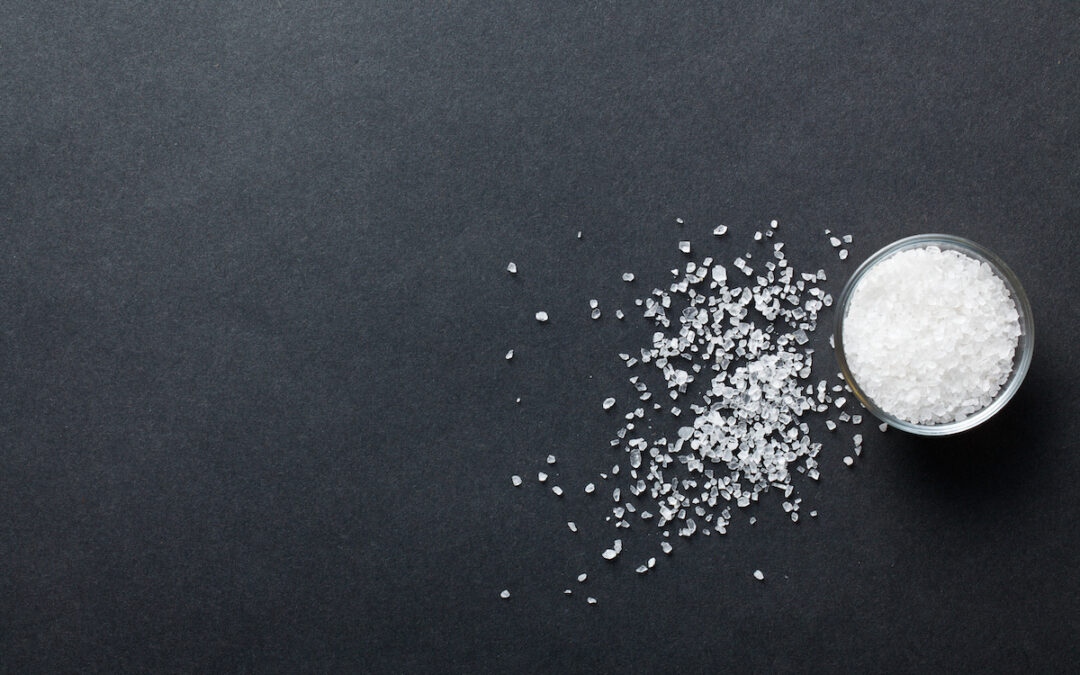by DrCiuffo | Jun 15, 2022 | Blog, Dr. Giovanni B Ciuffo, Recovery
What is Thoracic Surgery Recovery Like? What is thoracic surgery? Any surgery performed with an incision that enters through the chest is considered thoracic surgery, including open-heart surgery. Recovering from thoracic surgery is a long process. The recovery process will depend upon the exact type of surgery you have, the placement and size of the incision, the condition of the individual patient, and the care taken post-surgery. After all of these are considered, the doctors and healthcare professionals can provide the optimal recovery plan for your situation. To understand what it will look like, it is also essential to comprehend thoracic surgery itself. By learning more about thoracic surgery, you can see why the recovery process is such a long process. At the Minimally Invasive and Bloodless Heart Surgery Program, we provide you with the information that makes processes like this less intimidating from the start. There is less worry and more time to focus on reaching your important health goals. What is Thoracic Surgery? According to the Cancer Treatment Centers of America, thoracic surgery often referred to as open-heart surgery, may address a problem with the heart, esophagus, lungs, trachea, aorta, or diaphragm. Open heart surgery poses a significant challenge when it comes to healing. It’s going to take time to get back to feeling your best. It’s common to feel very tired and run down for six to eight weeks following the surgery. Your chest may feel swollen and sore for up to six weeks following the surgery. Most patients with traditional open-heart surgery go home with staples or stitches holding the incision closed while it heals.... 
by DrCiuffo | May 31, 2022 | Heart Health, Blog
6 Heart-Healthy Foods for the Spring With the warmer weather, farmers’ markets and grocery aisles provide more fresh produce and better opportunities to eat fresh foods that are heart-healthy choices. Heart-healthy foods for the spring are easy to come by. With the influx of barbecue and heavy desserts comes opportunities to acquire fresh fruits and vegetables, so it’s a time to make heart-healthy choices for yourself as the warm months roll in. We are here to provide you with the best ways to bring in heart-healthy foods without sacrificing the tastes you love. Heart-Healthy Nuts Snacking on nuts like almonds, peanuts, and seeds like pumpkin or sunflower seeds can help reduce inflammation, which is one of the markers for heart disease. They also help reduce the risk of blood clots and can help improve the health of the lining of the arteries. Packed with fiber, vitamin E, and protein, nuts are an excellent low-fat snack. Add nuts to dishes to add crunch and flavor, as well as make things like salads more filling and satisfying. Try a handful of walnuts in a crunchy apple salad for a sweet treat that’s not too heavy on sugar. Some nuts are even great combined together and simply eaten plain. There is no limit to how you can try these out and find the ones that taste the best to you. Barley, Oats, and Grains Fiber is your heart’s best friend, helping to clean cholesterol from the body’s storage systems and keeping your digestive health on track. Oats and other whole grains provide a slow-burning source of energy and carbohydrates. Unlike highly-processed foods... 
by DrCiuffo | May 15, 2022 | Blog, Dr. Giovanni B Ciuffo, Heart Health
The Benefit of a Low Sodium Diet Anyone who has a family history of hypertension has heard the term “low sodium diet.” It sounds like a bland way of eating that deprives the eater of flavor and interest in food, but it doesn’t have to be that way. As Americans, we consume a constant stream of processed foods, but given the chance, it’s possible to retrain ourselves to enjoy a wider range of flavors. We are dedicated to helping you find the healthiest opportunities for your body. Starting a low sodium diet is the perfect place to begin that journey. Low Sodium Diet While at first, the idea of reducing one’s salt intake may imply the loss of flavor, the exact opposite is true. In processed foods, salt is used to mask the flavor of chemicals and to replace the natural flavors lost in the cooking and preservative processes. When salt is reduced in our diets, those flavors have a chance to emerge, and our tastes adjust to enjoy the natural flavors in foods once again. Choosing a low-sodium diet isn’t just better for your overall health, it opens up new vistas of enjoyment in your eating that will make you fall in love with food again. If you are looking for ways to incorporate new flavors into your diet as well, this use of less salt can be a chance to try other spices. There are many recipes out there to try that require no salt at all. The key is being open to new experiences and flavors that may replace your desire to use salt in your... by DrCiuffo | Mar 15, 2022 | Aortic Valve Replacement, Blog, Heart Surgery
Having invasive surgery for a heart valve replacement is sometimes necessary, but it doesn’t have to be. Open heart surgery is a major operation and requires a hospital stay of at least a week, with part of that in the intensive care unit in most cases. Depending on your age, general health, and how severely damaged or faulty your heart valves are, invasive surgery may not be necessary. Although studies have shown that the heart valve replacement surgery survival rate is very high, there are other less invasive treatments for valve repair or replacement, such as minimally invasive aortic valve replacement or minimally invasive mitral valve repair. Minimally Invasive Aortic Valve Replacement Aortic Stenosis (AS) is a heart disease affecting the aortic valve. This valve is responsible for pumping oxygenated blood to all parts of the body. With AS, the aortic valve is too narrow, causing a very high internal pressure due to the heart working extra hard to pump blood through it. This pressure triggers the cardiac muscle to thicken to increase its strength, and eventually tires out and results in a life-threatening condition. The majority of patients with AS, with or without symptoms present, need to have minimally invasive aortic valve replacement to replace the defective valve with a new mechanical or biological heart valve prosthesis. If there has been a diagnosis of severe AS, even if symptoms are not present, patients should be evaluated as soon as possible for surgical intervention. Clinical evidence shows that delaying surgery is dangerous. Severe symptomatic aortic valve stenosis is a lethal condition that requires effective aortic valve replacement. No other... by DrCiuffo | Feb 15, 2022 | Advanced Heart Surgery, Anatomy, Blog, Dr. Giovanni B Ciuffo, Heart Health
Open heart surgery is one of the most invasive and stressful procedures doctors perform. Emotional side effects of open-heart surgery are to come after the procedure. In open-heart surgery, the heart is exposed for major repairs, a long incision in the chest is made, the breast bone is broken, and a heart-lung machine is used to pump blood in place of the heart. All of this places great stress on your body. Open heart surgery is not minimally invasive heart surgery. Living with, and through, the physical effects of open-heart surgery can be daunting. Included are pain at the incision site, muscle pain, or throat pain. If you have chest tubes for drainage, those can also be uncomfortable. Despite the discomfort, post-surgical pain usually disappears after 6 – 8 weeks. However, other kinds of problems can linger? The emotional side effects of open-heart surgery might surprise you. Personality and Emotional Side Effects of Open-Heart Surgery People who have had open heart surgery report mood changes, as do people close to them. Anxiety and depression are the most commonly experienced emotions after heart surgery. Anxiety can be caused, in part, by worries about possible physical aftereffects of the surgery. Keep in mind that full recovery from open heart surgery can take up to one year. Depression Patients who experience depression for more than several weeks after open-heart surgery may have something more than a typical, post-surgical mood change. One way to tell is if a person has difficulty in doing simple, daily tasks, like making their bed, getting and staying properly dressed, or keeping a routine. If an individual was... by DrCiuffo | Feb 1, 2021 | Blog, Heart Surgery
One of the scariest experiences a person can go through is being told that they have a serious heart issue that needs to be addressed with surgery. The risks for elderly heart surgery can be great, and not long ago, there wasn’t a wide variety of options available when it came to different procedures and techniques. When faced with such news, we begin to wonder if we may be facing the end of our lives. We may worry that, even with a successful procedure, the quality of our lives might still drop. But now, thanks to surgeons like Dr. Giovanni Ciuffo and his team of experts, there are minimally invasive, bloodless heart surgery alternatives to the conventional methods. How It All Began Dr. Ciuffo has dedicated his entire medical career to studying and developing new and precise techniques to minimize the risks, pain, recovery time, and intrusiveness of heart and cardiovascular procedures. He first began to employ his bloodless heart surgery techniques in the 90s, as a means of providing alternative options to the Jehovah Witness communities of Pittsburgh, and then later in New York. The results of his hard work and time invested are clear in the numerous medical studies and reviews which have confirmed the effectiveness of his bloodless heart surgery methods, as well as the countless patient testimonials praising his efforts and thanking him for saving their lives. What the Elderly Can Expect Before the Procedure Before any medical procedure such as this can be performed, a consultation followed by a thorough examination must take place first. This is necessary not only to make sure the...

